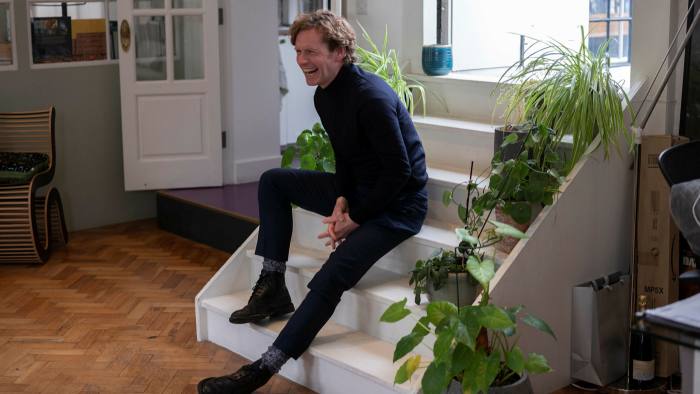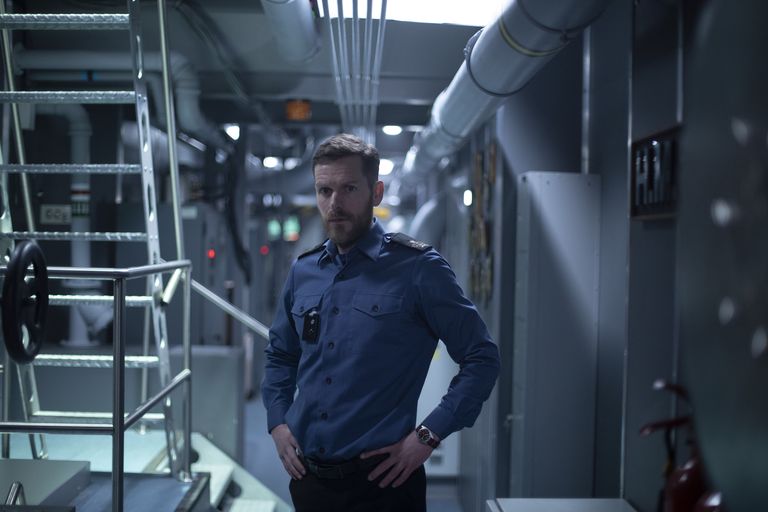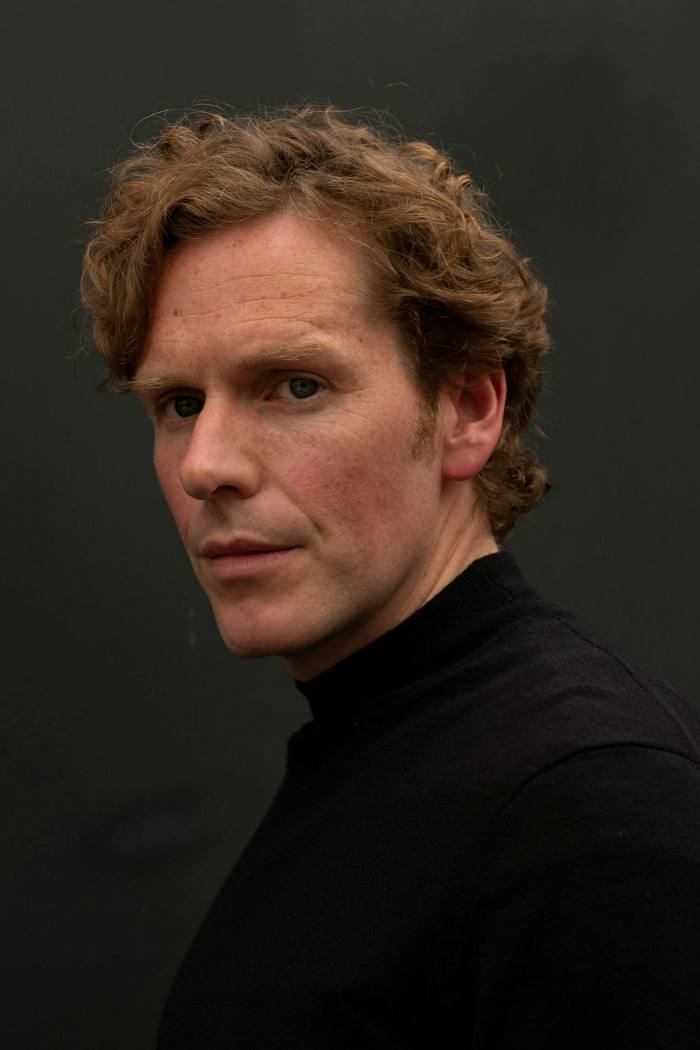|
By Fiona Sturges for Financial Times The ‘Endeavour’ star on his new series playing the young Morse, his directing stints and his role in the submarine-set crime thriller ‘Vigil’ When Shaun Evans agreed to star in the pilot for ITV’s Inspector Morse prequel, Endeavour, he assumed it would be a one-off; that was nine years ago. Last month, the actor finished work on the eighth series of the show, which one critic deemed as “comforting as cheese on toast”. Endeavour — the title refers to the protagonist’s seldom-mentioned first name — follows the fortunes of the young Morse, a policeman and opera lover already displaying the dourness for which his older self, played by the late John Thaw, is famous. It’s a classy and engaging murder mystery steeped in nostalgia. Even now, Evans — who is also an associate producer and occasional director of the series — can’t believe they’re still making it. “It’s totally unexpected but life is like that, and I’m glad it’s lasted so long,” he says. Endeavour is commissioned on a yearly basis, which means, on finishing one series, the cast and crew have no idea whether they will be making another. “That we keep getting invited back to make more I take as a good sign. As long as there’s still a story to be told, and we can push ourselves and improve what we’ve done before, I am happy to do more.” It is mid-July when we meet at his agent’s office in Soho, London, which, as signified by the dead plants lining the windowsills, has stood empty since the first lockdown. Endeavour isn’t the only major series Evans has in the works. He is soon to appear in Vigil, a smart and tense new BBC crime thriller also starring Suranne Jones, Line of Duty’s Martin Compston and Game of Thrones’ Rose Leslie. It sees Jones’s police detective, Amy Silva, dispatched via helicopter to a submarine off the coast of Scotland to investigate a suspicious death on board. Evans plays Chief Petty Officer Elliot Glover, who is the ship’s coxswain and whose job is to facilitate Silva’s investigations while keeping the secrets of the captain and senior crew members. Evans has long been an admirer of the series’ director James Strong, who also directed ITV’s Broadchurch and Vanity Fair. “It was a really great script and I was intrigued by the idea of a locked-room mystery where no one can get off or out of this space,” he says. The irony of working on a series set on a submarine, a place in which people live and work at intolerably close quarters, was not lost on the cast and production team. They started work on the series in late 2019 but production was paused with the first lockdown, after which they had to rethink how particular scenes were shot. By way of research, Evans visited a naval base in Liverpool. “I hung out with some mariners, and we chatted about the kind of traits that a person who has that role would have. You need to be affable, and be able to rub along with people. You’re away for 90 days at a time, so you need to be OK with that. “My character has a wife and child but chooses to be away from them for a large part of the year, without being contactable. I say this without judgment, but it’s an interesting choice that I don’t think I could make.” Evans, 41, is a friendly but cautious interviewee. Little is known about his early life beyond that he grew up on the outskirts of Liverpool and, after his A-levels, went on to study at drama school. My inquiries about his life as an actor are invariably greeted by long pauses, allowing him to find the correct words while not giving too much away. He began his career in the Channel 4 comedy Teachers, alongside Andrew Lincoln, and subsequently appeared on the TV series Ashes to Ashes, Whitechapel and Silk and, on the big screen, The Boys From County Clare, Being Julia and Telstar: The Joe Meek Story. He has never had a career plan, and still doesn’t. When I ask “where do you see yourself . . . ” he butts in and says “I don’t” before I can finish the sentence. He doesn’t look at reviews and doesn’t read interviews either. “No offence,” he adds. “But I don’t want to be made self-conscious. I want to be free, and not feel weighed down [by what others think].”
What I do learn, on the occasions we veer off the topic of his work, is that he is a music fan — he likes John Grant and Teddy Thompson — and a big reader. When I mention that I recently read Sea State, Tabitha Lasley’s book about oil riggers, whose lives aren’t that different from submariners’, he diligently takes down the title. Evans does a bit of writing of his own on the side, as well as photography, though he is clear that these projects are for himself and not for public consumption. He puts the enduring appeal of Endeavour down to the quality of the stories and the capacity of the viewer to engage with Morse’s character. “There’s something about telling a story in a long form that’s satisfying. You can do so much more with that than a 90-minute film, which comes and goes. The idea of seeing six years of someone’s life, I find that fascinating. I want to help shape that character. That’s the luxury that’s afforded to me in sticking with the series for so long.” Evans says he deliberately didn’t watch Thaw’s Morse, as he wanted to come to the character fresh. He did, however, read the books on which the series is based. He and the author, Colin Dexter, who died in 2017, were close friends. Previously a teacher, Dexter had the idea of writing a crime series while holidaying in Wales in the 1970s — “and then he got a Biro and an A4 pad and just wrote it. That always blows my mind,” Evans says. Dexter was closely involved in casting for Endeavour — “it was clear that if they didn’t find the right person [to play Morse] then it wouldn’t happen” — and vetted the early scripts, written by Russell Lewis, who also created the Morse spin-off series Lewis. “The things that he would say about the script were always the things that were troubling me too,” Evans adds. “I felt a real kinship with him.” Storytelling, as opposed to fame or acclaim, is what drives the actor. “Everyone’s got their own brilliant little story, right?” he says. “That’s what keeps me engaged, the idea that there are so many stories and so many ways to tell them.” It is this that has led him to pursue a parallel career as a director. Before he began directing episodes of Endeavour, he worked on BBC hospital drama Casualty. “I harangued them to give me a job. I did one episode and then, on the next break from Endeavour, instead of taking an acting job, I went back to do some more,” Evans says. “I really wanted to learn my trade . . . I don’t want to be limited by just being an actor, and by that I mean I want to be able to tell stories that don’t depend on my acting limitations. As an actor, you can feel stymied. You’re always waiting for someone’s permission to do your work.” Does he think he will move into directing permanently? There is a long pause. “I’ve got a couple of things that I’m developing that I can’t talk about as I don’t want to jinx them,” Evans replies. “But I’m happy to be a gun for hire and act in a job if I think I can bring something to it. Ultimately, you want to feel like your work is your work. So if I’m given the opportunity to create, then that’s what I’ll do.” ‘Vigil’ begins on BBC One and BBC iPlayer at 9pm on August 29; ‘Endeavour’ returns to ITV in September
0 Comments
Your comment will be posted after it is approved.
Leave a Reply. |
News Archive
September 2021
|



 RSS Feed
RSS Feed